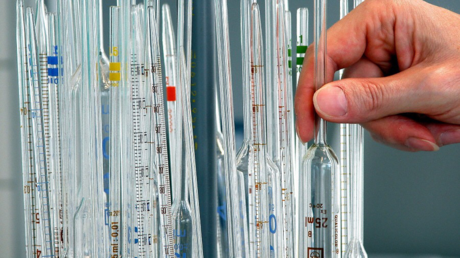Czech President’s ‘Novichok bombshell’ undermines London’s credibility in Skripal case
The UK’s intelligence services seem to have lost all remaining credibility, after the Czech President’s admission that his country had previously produced a nerve agent similar to the one Britain claims was used against Skripals.
“I think there are problems in and around the English spy agencies, who seem to be quite ready to manufacture evidence, in the case of the Steele dossier, maybe manufacture evidence in the case of the Skripal poisoning. And they are damaging their credibility. It takes a long time to regain credibility if you damage it this severely,” political analyst Charles Ortel told RT.
On Thursday, the Czech Republic’s president Milos Zeman revealed that his county had previously developed and tested an A-230 chemical agent of the Novichok group, similar to the one which, according to London, was Russia’s exclusively and was “highly likely” used by Moscow to poison former double agent Sergei Skripal and his daughter Yulia in Salisbury on March 4.
The accusations were followed by sanctions against Russia and the expulsion of Russian diplomats from the UK and other countries that backed Britain’s stance. Ortel blamed the media for dangerously exacerbating the crisis without vetting the information coming out of London with due diligence.
“I think it is irresponsible the way supposed main street journalists leap on these stories without really vetting it and then get us into a place where tensions are escalated around the world, including two nuclear-armed powers Russia and the United States, and the third in the UK. This is a dangerous business,” Ortel said.
The claims of Russian involvement have not been backed up by either Britain’s own scientists at the Porton Down laboratories or by the Organization for the Prohibition of Chemical Weapons (OPCW), both of which say it’s not their job to apportion blame or to identify the toxin’s origin, but only the type of substance involved. Russia has also repeatedly denied the allegations and accused the UK of excluding it from the investigation, and of destroying evidence.
“I think it is a very dangerous business to start making accusations as serious as have been made in the case of Skripal, in the case of Steele…that are not actually backed up by hard facts,” the political analyst noted.
Baseless accusations, Ortel believes, could potentially ruin the career of British Prime Minister Theresa May, who, together with Foreign Secretary Boris Johnson, led the charge against Moscow. After all, Russia has repeatedly reiterated that a number of countries had the means to produce nerve agents of the Novichok group.
“Lots of countries have made these. There is probably at least a dozen countries that have the capabilities to make these persistent nerve agents. And it does not surprise me that the Czech Republic and many other countries could do this. The Czech Republic is very advanced in their chemical and synthetic chemistry ability. And many nation states could have done this,” chemical weapons expert and Rice University professor James Tour told RT.
“Britain is in a very dangerous place and they kind-of have to stick to their story and it is possible that, by sticking to this story, the May government may ultimately be sacked,” Ortel told RT. “So they are in a place where it will be very difficult for them to admit a mistake after all these weeks and after their strong positions and actions that so many governments took, our own included, the US in reliance mostly on UK analysis.”
Previously, Moscow pointed out that UK authorities themselves admitted that their lab in Porton Down was in possession of the nerve agent that poisoned the Skripals. In fact, many countries have been developing and testing the A-class nerve agents just to have them in their own arsenals or find ways to defend against them, Professor Tour explained.
“Many countries have made it in the past as part of a study of making the nerve agents. And many countries have made nerve agents if you want to study what persistent nerve agent could be like – something that is harder to detect, something that lasts much longer than a typical nerve agent like Sarin, Soman, or GF – then you want to be making these and understanding how they work. Sometimes countries make it just to learn how to defend against it. They might make it to learn how to build an antidote for it.”
Like this story? Share it with a friend!







Comments are closed.